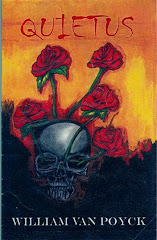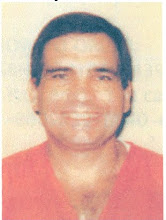Dear Sis ~
Having a certain degree of free time to enjoy (no legal work on the agenda) I finished reading James Ford Rhodes' History of the Civil War 1861-1865, a concise, one-volume history which is surprisingly comprehensive given the scope of the subject mater. I've read many a history of this war over the decades (I find myself returning to this terrible conflagration time and again) and this is a good one, both being scholarly yet written at the layman's level, and noteworthy for its objectivity. Rhodes originally authored a seven-volume history of the United States covering the period from 1850-1877 and written (or at least begun) in 1891, including five volumes covering the war. Later on, beginning in 1913, he produced the single volume I just read, published in 1917, and for which Rhodes was awarded the Pulitzer Prize for history. What's interesting about this book is that Rhodes was able to, and did, interview a lot of the survivors of the war for his source materials and in that sense he was "closer" to the actual events (he was a teenager himself during the war) than writers of later generations, a fact which subtly makes itself apparent in this book, both by his vernacular and perspective. Another thing that struck me, and this was surprising, or at least unexpected, was how much the language and rhetoric of the southern politicians who were vigorously advocating for secession, and war with the Union, matches (often word for word) the rhetoric of today's contemporary Tea Party advocates, from "state's rights" arguments right on down the line. Whenever I read a history of our civil war I'm again powerfully reminded of what a bloody and violent people we are; it seems to be in our DNA, in our sinews and bones, this deep need to resort to bloodletting to resolve our disputes. You cannot be a serious historian of this nation without coming to this conclusion, for there have been precious few years in the last 240 where we have not been at war with some nation of peoples, somewhere. We claim to be a peaceful nation but the cold facts prove that to be a lie...
Well, Governor Scott has been taking a brief respite from his prior busy schedule of signing death warrants (our last execution was April 12th) but I've heard from a reasonably reliable source (an attorney in a position to know) that he will soon resume. I've even heard three specific names mentioned but I won't repeat them here. I've often wondered how a governor makes this decision. Does he wake up one day and tell himself "time to kill someone"? How does he choose the particular prisoner from the long list of available names? Under Florida's system the governor has sole discretion as to who to kill, how many to kill, and at what pace. It's totally subjective on his part, and necessarily arbitrary and capricious. Maybe he just throws a dart at the list. Nobody knows, except the governor and those closest to him. Only the governor knows if this decision(s) weigh on his heart and mind...
Alright, Sis, I'll close this up and mail it off. Give yourself a hug for me and give the doggies a rub on their snouts!
Love & Peace,
Bill
Thursday, August 09, 2012
Subscribe to:
Posts (Atom)




